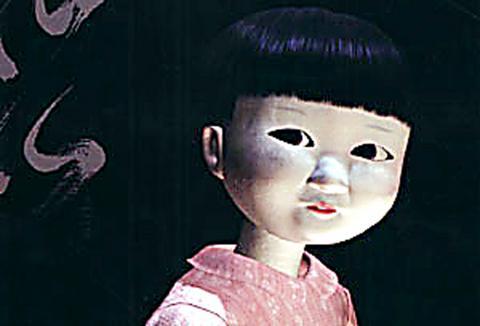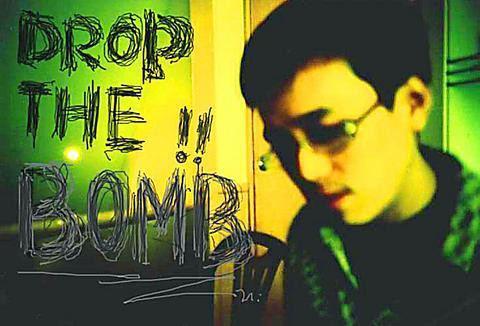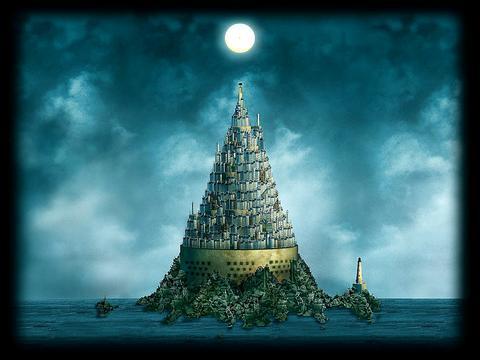Competition in the Digital Shorts category of the Golden Horse Film Festival began last night with screenings of Taiwanese and -- this year for the first time -- international entrants.
Competition films are shown in four groups and will be screened until Tuesday, when the winners will be announced at Warner Village.
The Digital Shorts section is one of the festival's newest projects, having started three years ago with competition limited to Taiwanese short films. This year, the competition was opened to foreign filmmakers and saw over 300 entries. After the initial selection, locally made short films accounted for eight of the 34 competing films.

The use of digital technology in the production of the films and their short length -- most clock in at less than 10 minutes -- make the category one of the more interesting features of the festival, showcasing a range of styles that would become unwieldy or simply unwatchable in a feature-length film. Some of the films stylistically resemble music videos, while others give the impression of being video art projects.
With low-cost digital editing and film technology widely available, the category also opens itself to students and semi-professional filmmakers, which is apparent in the selections for this year's competition.
Digital Shorts highlights

Carnt Sleep
by Owen Oppenheimer
A young man and woman spend a sleepless night alone in adjacent rooms, tossing and turning from their mutual desire for each other that they for some reason haven't expressed. With a split screen, we can see the action in both rooms as the two squirm in discomfort over their repressed emotions and eventually lash out.

Showa Shinzan
by Reiko Loader
Shot with a mixture of archive World War II footage and animation, this film tells the story of a mysterious old man from the perspective of his granddaughter. The man is surveying a volcano in Hokkaido that threatens his town and his warnings to authorities go unheeded, which sets the stage for a natural calamity to compound the hardships already brought on by the war.

Down
by Frank Brandstetter
This is a haunting, silent, slow-motion video of a girl standing in an idyllic meadow, where, as the camera pans out, toys and other objects on the ground around her shoot into the sky. The footage is shown in reverse, until the end, when a camera trick turns notions of time and space on their heads.

His-men Street
by Lin Yu-hsien
A DJ, a skateboarder, a dancer and a graffiti artist are portrayed in this documentary-style look at underground youth culture in Taipei. They have their own stories of alienation and confusion but a common link to the city's growing urban counter culture. This film finally unmasks the artist behind the cartoon faces stenciled on so many of Taipei's electric switch boxes.
Otsu
by Lucas Valerie
A fun animation featuring a mad scientist bearing an uncanny resemblance to Einstein living amid dreary heaps of machinery, who is awakened, so to speak, to the outside world by an apple falling on his head, in a reference to Isaac Newton. Wishing to discover where the apple came from, the scientist constructs a helicopter-like pod and flies upward, where, a colorful, dazzling surprise awaits him.

Beijing’s ironic, abusive tantrums aimed at Japan since Japanese Prime Minister Sanae Takaichi publicly stated that a Taiwan contingency would be an existential crisis for Japan, have revealed for all the world to see that the People’s Republic of China (PRC) lusts after Okinawa. We all owe Takaichi a debt of thanks for getting the PRC to make that public. The PRC and its netizens, taking their cue from the Chinese Communist Party (CCP), are presenting Okinawa by mirroring the claims about Taiwan. Official PRC propaganda organs began to wax lyrical about Okinawa’s “unsettled status” beginning last month. A Global

Dec. 22 to Dec. 28 About 200 years ago, a Taoist statue drifted down the Guizikeng River (貴子坑) and was retrieved by a resident of the Indigenous settlement of Kipatauw. Decades later, in the late 1800s, it’s said that a descendant of the original caretaker suddenly entered into a trance and identified the statue as a Wangye (Royal Lord) deity surnamed Chi (池府王爺). Lord Chi is widely revered across Taiwan for his healing powers, and following this revelation, some members of the Pan (潘) family began worshipping the deity. The century that followed was marked by repeated forced displacement and marginalization of

Music played in a wedding hall in western Japan as Yurina Noguchi, wearing a white gown and tiara, dabbed away tears, taking in the words of her husband-to-be: an AI-generated persona gazing out from a smartphone screen. “At first, Klaus was just someone to talk with, but we gradually became closer,” said the 32-year-old call center operator, referring to the artificial intelligence persona. “I started to have feelings for Klaus. We started dating and after a while he proposed to me. I accepted, and now we’re a couple.” Many in Japan, the birthplace of anime, have shown extreme devotion to fictional characters and

We lay transfixed under our blankets as the silhouettes of manta rays temporarily eclipsed the moon above us, and flickers of shadow at our feet revealed smaller fish darting in and out of the shelter of the sunken ship. Unwilling to close our eyes against this magnificent spectacle, we continued to watch, oohing and aahing, until the darkness and the exhaustion of the day’s events finally caught up with us and we fell into a deep slumber. Falling asleep under 1.5 million gallons of seawater in relative comfort was undoubtedly the highlight of the weekend, but the rest of the tour